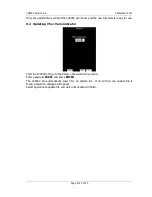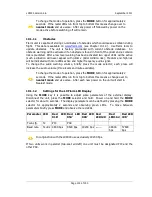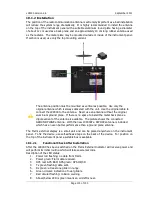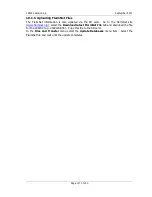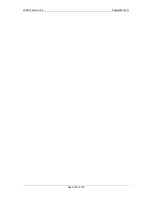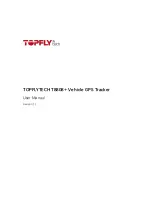
LX9000 Version 2.6
September 2011
Page 115 of 130
10.1.2
Installation
The position of the radio communication antenna is extremely important as a bad installation
will reduce the system range dramatically. It is highly recommended to install the antenna
on the top of the instrument panel with a suitable aluminium round plate having a diameter
of about 12 cm used as a back plane and an approximately 10 cm long rubber antenna used
as the radiator. The metal plate may be mounted outside or inside of the instrument panel.
If carbon is used, use only the top mounting variant.
The antenna position must be mounted as vertical as possible. Use only the
original antenna which is always delivered with the unit. Use the original cable to
connect the LX9000 to the antenna. Never use an antenna without the original
aluminium ground plane. If there is no space to install the metal back plane a
dipole variant of the antenna is available. The picture shows the connected
GROUND PLANE antenna. With the new LX9000F a DIPOLE antenna is included
which has an even better performance than a ground plane antenna.
The Flarm external display is a small unit and can be placed anywhere on the instrument
panel. To fix the device, use self-adhesive tape on the back of the device. For position on
the top of the instrument panel a suitable box is available.
10.1.2.1
Functional Check After Installation
After the LX9000 has been switched on the Flarm External Indicator will receive power and
will perform its initial routine which will take several seconds.
Description of the LED status:
1.
Power red flashing: no data from Flarm.
2.
Power green: Flarm data received.
3.
GPS red: GPS BAD; GPS green: GPS OK/3D
4.
Tx green flashing: data sent.
5.
Rx green: at least one glider in range.
6.
Green circular: indication of near gliders.
7.
Red circular flashing: collision warning.
8.
Above/below LED is green means an aircraft is near.












